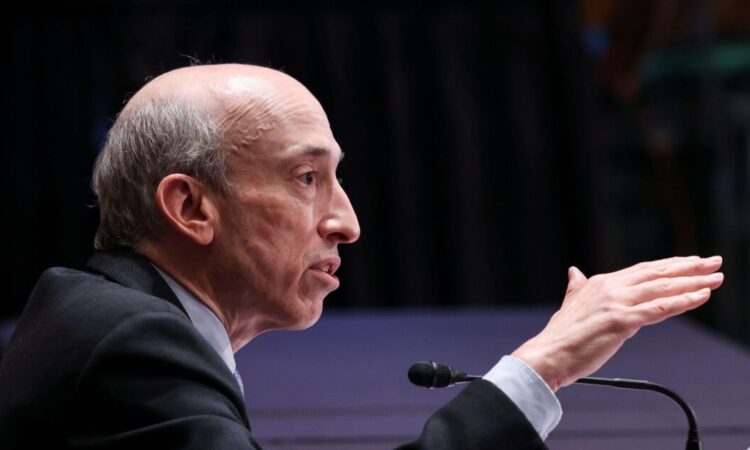
The drama in cryptocurrency markets surrounding last year’s collapse of FTX, a so-called exchange, reignited a debate that has been raging for several years but progressing at a ludicrously slow rate: how to regulate cryptocurrencies.
The sector has been causing problems for some time. A few years ago, during its last renaissance but one, unsophisticated investors lost huge amounts in scam “initial coin offerings” (ICOs) that allowed almost anyone to promote unproven financial products in an unregulated market and take unwitting and unsophisticated investors for a ride. Elsewhere, so-called “whales” have often been able to initiate and take full advantage of “pump and dump” schemes, convincing people without formal financial training to lose their stakes to the hands of more experienced players. There are multiple examples that follow these playbooks.
In the most recent scandal, FTX’s founder Sam Bankman-Fried exposed the industry’s shortcomings and proved that, unlike the established banking system, with its strict regulatory oversight and capital requirements, nothing in crypto is too big to fail.
As with all nascent technologies, the speed at which regulators have been able to keep up has been limited by procedure and due process.
While the debate over how, or even whether, to regulate the sector has been polarised, there have been widespread calls to introduce stricter measures on a global level.
Basel-esque standards that would offer guidelines and mandatory levels of enforcement across the world are necessary, proponents argue, to curtail the borderless threats cryptocurrencies pose.
In a world where a technology transcends internationally recognised concepts of borders or fiat currency restraints, a united front against tricksters and scam artists (of all sizes) would offer protection to the trillion-dollar industry that simply doesn’t exist right now.
To do this, there needs a level of cooperation between regulators in the main financial hubs. The EU, often the standard setter in the financial sector since its inception, has the Markets in Crypto-Assets Regulation (Mica), the first serious attempt to comprehensively police the sector, and the UK plans to introduce strict regulatory oversight of the whole industry under FCA authority as it looks to position itself as a hub.
But given the current direction of travel between the UK and the EU, which has the former pushing itself further and further from the latter’s ruleset, to the point where the levels of divergence risk serious financial fragmentation, it’s unlikely that the rules will align too closely. Yet again one can’t help but wonder if this policy of divergence is missing the wood for the trees a little, simply creating risk for the sake of being different.
In the US infighting is again blocking progress. For several years, the question of who should regulate what in the crypto space has not been answered. The Securities and Exchange Commission (SEC) and the Commodity Futures Trading Commission (CFTC) have been jostling for the position for many years. Each has competing priorities, requires federal funding and, in essence, wants to get as big a slice of the crypto pie as possible.
The prudential banking regulators — the Federal Reserve Board (FRB), the Federal Deposit Insurance Corporation (FDIC) and the Office of the Comptroller of the Currency (OCC) — have also issued a statement confirming supervisory authority over banking organisations to reduce risk and protect the banking sector at the start of this year. While the three of them at least coordinated this guidance, it complicates the issue. Do they work in tandem with the SEC’s proposals? What about the CFTC? Is there competing guidance?
The simple truth here is that for the cryptocurrency sector to be legitimately policed, there needs to be a coordinated effort. Ideally, this would be global, but if the EU and UK markets can’t work together, and the US can’t even decide within its own borders who’s going to lead its charge, how is this ever going to be possible? And this is without even considering the situation in Japan, China, Singapore and South Korea, where there is very high use of this technology.
If another FTX meltdown is to be avoided, it is crucial that a cryptocurrency company based in a country like the Bahamas (where FTX was domiciled) plays as close to a hymn book as possible as counterparts based in San Francisco or Seoul do. At the very least they should share minimum baseline standards.
A crucial component of making this happen is for the country with the biggest players and the biggest market to get its act together and work out who is going to be in charge. Otherwise, progress is going to continue to be limited. If the US can’t do that, expect another FTX very soon. Coinbase and Binance US have vast amounts of users, but can they prove they have the reserves to finance a run of withdrawals?
Crypto is an accident waiting to happen, which the financial sector needs to be ready for.






